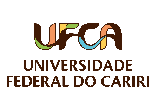Banca de QUALIFICAÇÃO: ALYNE LEITE DE OLIVEIRA
Uma banca de QUALIFICAÇÃO de MESTRADO foi cadastrada pelo programa.STUDENT : ALYNE LEITE DE OLIVEIRA
DATE: 29/09/2025
TIME: 17:00
LOCAL: Sala do Google Meet em https://meet.google.com/tcq-kyyj-sbt
TITLE:
FRAMEWORK FOR ANALYZING AND OVERCOMING BARRIERS TO TECHNOLOGY TRANSFER: a Multi-Case Study in Public Higher Education Institutions (IESP) in the Metropolitan Region of Cariri, Ceará
KEY WORDS:
Technology Transfer, barriers, IESP, Design Science Research.
PAGES: 64
BIG AREA: Ciências Sociais Aplicadas
AREA: Administração
SUBÁREA: Administração de Empresas
SPECIALTY: Mercadologia
SUMMARY:
In the Brazilian context, technology transfer (TT) in Public Higher Education Institutions (IESPs) has emerged as a complex and essential challenge for strengthening the innovation system. Despite the strategic importance of these institutions for the generation and dissemination of scientific and technological knowledge, they face structural, bureaucratic, cultural, and institutional barriers that hinder the effective promotion of TT, especially in less central regions, such as the Cariri Metropolitan Region of Ceará. These obstacles include limitations in university-business interaction processes, slow contractual procedures, intellectual property management, and a lack of resources directed towards innovation. Considering these aspects, this research aims to propose a Framework to support the analysis and overcoming of barriers to Technology Transfer (TT) in Public Higher Education Institutions (IESPs) in the Cariri Metropolitan Region. The specific objectives are: To identify the main barriers to Technology Transfer faced by Public Higher Education Institutions in the Cariri Metropolitan Region (URCA, UFCA, and IFCE); 2: Develop a conceptual framework that organizes and relates the identified elements; 3: Validate a framework to verify its applicability, usefulness, and alignment with local challenges and needs. The study adopts Design Science Research (DSR) as its core methodology. To achieve the proposed objectives, each phase of the research adopts a methodology that, when correlated, converges to create the artifact defined in the core method. The first phase is structured around a Multi-Case Study, with data analysis conducted through multilevel analysis, which will allow investigation of how variables at the individual (researchers) and organizational (NITs and universities) levels relate to overcoming barriers. The selection will be intentional, considering the representativeness of the Regional University of Cariri (URCA), the Federal University of Cariri (UFCA), and the Federal Institute of Ceará (IFCE) to strengthen the local ecosystem. After analyzing the results from the previous phase and in fulfillment of the second objective and central proposal of this study, the Framework (diagram and best practice guide) will be developed based on a process of theoretical synthesis and modeling, combining the identified barriers with innovation management and TT approaches, such as Absorptive Capacity Theory and the Triple Helix Model. The goal is to generate a knowledge artifact applicable to the case studies. In the third phase, validation of the artifact will be carried out in two stages: first, by selecting judges (experts) in the field, who will assess the framework's relevance and coherence; and second, by applying the Delphi method, a multi-round consensus process that will ensure the framework's applicability, usefulness, and alignment with local challenges and needs.
COMMITTEE MEMBERS:
Externo à Instituição - SÍLVIO BITENCOURT DA SILVA - UNISINOS
Presidente - ALLYSSON ALLEX DE PAULA ARAUJO
Externo à Instituição - BRENNO BUARQUE DE LIMA - UFC
Interno - ELIAS PEREIRA LOPES JUNIOR
Interno - MILTON JARBAS RODRIGUES CHAGAS




